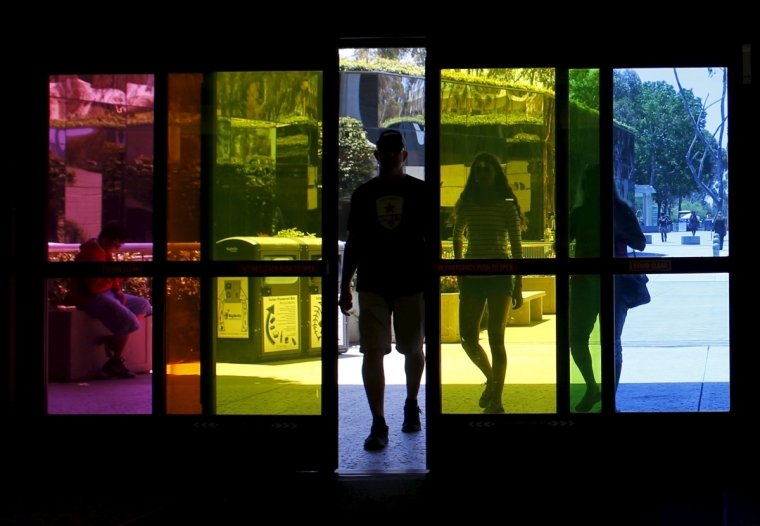Critics say Janet Napolitano's university statement against intolerance could violate free speech

OAKLAND, Calif. (Christian Examiner) – The University of California (UC) system, under pressure to address recent anti-Semitism demonstrations, has proposed a draft of a Statement of Principles Against Intolerance, which could potentially infringe on the free speech rights of students, faculty, and staff.
"Intolerance has no place at the University of California," the statement declared. "Everyone in the University community has the right to study, teach, conduct research, and work free from acts and expressions of intolerance."
Numerous critics have raised the concern that UC's statement, written by UC President Janet Napolitano and others, would unnecessarily limit free speech rights on campus. Napolitano served as the United States Secretary of Homeland Security from 2009-2013 for the Obama administration.
In an opinion at the Washington Post, UCLA professor Eugene Volokh objected to the definition of intolerance. "Articulating a view that people with various intellectual disabilities are incapable of various intellectual tasks, or people with various physical disabilities are incapable of various physical tasks, would be condemned by the authority of the University," he wrote.
The statement specifically provides that depicting ethnic or racial groups as less "ambitious" or "talented" or people with disabilities as "incapable" was among the behavior that UC considered intolerant.
"It's just an up-front categorical rule," said Volokh. Interpreting the UC position, he wrote, "Whatever you want to say along these lines, we don't want to hear it, we don't care what your arguments are, we'll condemn it, and faculty and students have a right not to hear it."
ANTI-SEMITISM
The LA Times reported a case of individual discrimination when a student applying to UCLA's Judicial Board was questioned about her ability to be unbiased based on her membership in a Jewish sorority.
According to OneNewsNow, "Jewish groups push[ed] the UC [system] to adopt the State Department's definition of anti-Semitism, saying campus debates over the Israeli-Palestinian conflict were disintegrating into the harassment of Jewish students."
However, the statement makes no specific mention of anti-Semitism, causing the displeasure of groups that were initially heartened to hear Napolitano's openness toward the stand against anti-Semitism.
The statement's only reference to the specific situation was to include "graffiti reflecting culturally recognized symbols of hate or prejudice [including] depictions of swastikas, nooses, and other symbols intended to intimidate, threaten, mock and/or harass individuals or groups" among its list of intolerant behaviors.
The Board rejected the initial draft because it failed to include the word "anti-Semitism." A committee to redraw the statement has been called for.
NO TOLERANCE OF INTOLERANCE
Practically, the statement could prevent discussion about eligibility requirements for student leadership positions or recognition for student achievements, as well as limiting classroom discussion.
The statement said it is not intended to dictate speech related to academic freedoms or course content; neither does it claim to be grounds for disciplinary action or even enforceable.
Yet the language of the statement with reference to the UC system's "right" to be "free from...intolerance" suggests that in attempting to create a description of intolerance, it was far too vague.
Will Creely, a First Amendment lawyer associated with the Foundation for Individual Rights in Education (FIRE), called the statement "misguided" and "superficial."
On the FIRE website, Creely wrote, "Instead of responding to and exposing unwanted speech—be it a microaggression or anti-Semitism—with more speech, these measures seek to establish boundaries for discussion, explicitly labeling certain viewpoints as untenable, even if not technically subject to discipline."
Creely warned that the UC statement could cause a snowball effect in which more speech objected to by some parties is sweepingly prohibited for all.
CRITICISM OF THE STATEMENT
While each of the critics has agreed with the statement's implicit intention to stand against hate speech, most felt it has gone too far in its definition of discrimination.
The Los Angeles Times condemned the statement for being too broad and thus allowing for the potential to censor or condemn opinions in student newspapers or emails. "At many universities — including UC — a well-meaning effort to combat racism and discrimination has sometimes resulted in bizarre examples of censoriousness," the paper said, drawing a line between intolerance and offense.
The editorial continued, "A related phenomenon is the conviction that college students must be shielded not only from insults and harassment but also from ideas they find objectionable."
This is, in fact, the opposite of academic freedom, a state in which objectionable ideas may be presented in order to be discussed.
"Changing minds requires dialogue, not an official decree," said Creely.
The university's attempt to curtail discrimination might well end up protecting students from certain types of academic conversation altogether, rather than its initial intention to take a stand against anti-Semitism on campus.